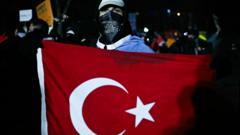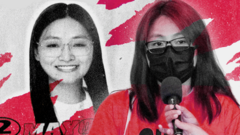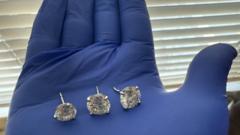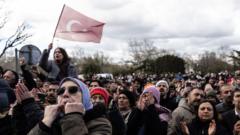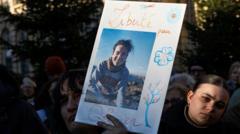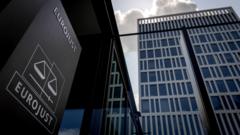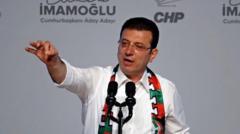After years of speculation about potential accountability, Rodrigo Duterte has made his first court appearance via video link at The Hague, spotlighting the contentious legacy of his anti-drug campaign and the challenges surrounding his arrest.**
Rodrigo Duterte's Legal Troubles: From the Presidency to the ICC**

Rodrigo Duterte's Legal Troubles: From the Presidency to the ICC**
Former Philippines President Rodrigo Duterte faces justice at the International Criminal Court amidst claims of a bloody drug war.**
Former President Rodrigo Duterte of the Philippines has appeared via video link at the International Criminal Court (ICC) in The Hague, where he is currently held. This significant moment follows years of investigation into the controversial and violent anti-drug campaign he led while in office. As details about his potential legal entanglements emerged, the narrative around his fate became a mix of political intrigue and allegations of human rights violations.
In early March, prior to his arrest, Duterte was in Hong Kong for a rally, causing speculation about whether he would return to the Philippines or seek asylum in China, which is not a signatory to the ICC. His sudden travel raised concerns that he was attempting to evade justice. His presence in Hong Kong coincided with the ICC issuing a sealed arrest warrant against him, further heightening the drama surrounding his situation.
Duterte's legal representatives have publicly denied claims that he intended to escape to China, asserting that the former president remains unfazed by the legal actions against him due to his age and experience. This conflict of narratives highlights the complex and polarized views on Duterte's presidency, where supporters laud his tough stance on crime while critics contend that it resulted in widespread human rights abuses.
As the international community watches closely, the developments surrounding Duterte's case could have significant implications for accountability and governance in the Philippines as well as for international human rights norms. The unfolding events will undoubtedly continue to shape discourse around his administration's legacy and the rule of law in the face of alleged impunity.






